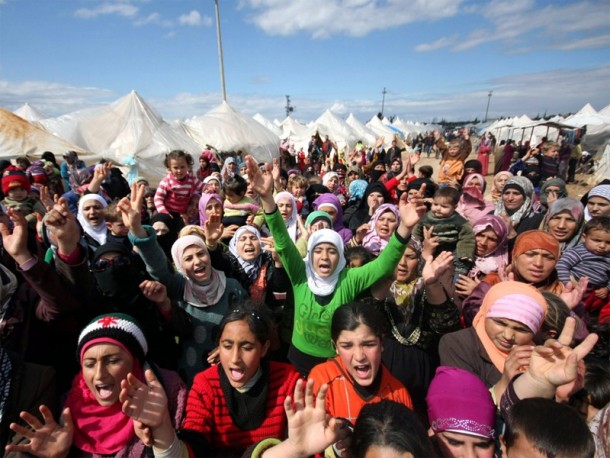As pressure mounts on the European Union to solve the Syrian refugee crisis that is lapping at its southern borders, many are beginning to turn their condemnation towards the Arab Gulf states who have thus far refused to share the burden of resettling the massive number of people fleeing the mounting violence in the Middle East.
So far, some states in the Middle East have taken it upon themselves to accommodate Syrian refugees, with Turkey taking in approximately 2 million people, and Lebanon housing close to 1.2 million.
Whilst such massive intakes such as those of Turkey and Lebanon seem extremely generous, the fact of the matter is that these countries had very little choice, as these millions of Syrians were going to be clambering over their borders to escape the atrocities of the Assad regime, Islamic State and various other rebel groups within the war-torn country.
There are many other nations that did have a choice as to whether they would assist the desperate Syrians fleeing persecution, and we have seen heartening extensions of generosity from the likes of Germany and some other European countries.
However, Saudi Arabia, Kuwait, Bahrain, Oman, Qatar and the United Arab Emirates have chosen to ignore the humanitarian crisis unfolding in Syria and keep their borders shut.
These relatively wealthy Gulf states, that have made their fortunes through oil, gas and financial institutions, have a much larger capacity to assist those in need than the likes of Lebanon, Jordan and Iraq whom have taken on most of the burden.
The troubling paradox with the lack of assistance coming from the Gulf states is finely laid out by Jordanian human rights expert Fadi al-Qadi. “These states have invested money, supported political parties and factions, funded with guns… and engaged in a larger political discourse around the crisis”, al-Qadi stated, yet with this, the Gulf states refuse to help those whose lives have been devastated by their geopolitical game-playing.
According to a 2014 Amnesty International report, the six countries of the Persian Gulf have allocated zero humanitarian resettlement places for Syrian refugees, and it is known that this situation has not changed.
“The Gulf states have traditionally not been resettlement countries”, says Bill Frelick, director of the refugee sector of the Human Rights Watch, “They’ve been sort of aloof from doing that”.
It is difficult to understand why the Gulf states are so vehemently opposed to accepting those seeking asylum from Syria. Aside from their political ties to the unfolding conflict across Syria and Iraq, these states share many commonalities with these people in the form of the Arabic language, Islamic faith and age-old historical ties.
However, the Gulf states have stood up against this growing criticism claiming that such condemnation is unwarranted. Saudi Foreign Minister Adel al-Jubeir stated that his country in particular had a decent track record of helping Syrian refugees, “The Kingdom of Saudi Arabia is one of the largest supporters of aid to the Syrian refugees… and the Kingdom has been a welcoming environment for Syrians”.
Whilst the claim by al-Jubeir is true in the sense that Saudi Arabia and other Gulf states have donated millions of dollars to assist in funding refugee camps in Lebanon and Jordan, it must be remembered that the states of the Gulf have actively sought to make themselves as unapproachable as possible for potential refugees.
“The Gulf countries, there’s always been a bit of a nationalist bent, I think, a bit of a reluctance to have too many foreigners in there”, says Daryl Grisgraber, organizer at Refugees International.
This logic is extended from the fact that is some of the smaller Gulf states, such as Qatar and the United Arab Emirates, foreigners already vastly outnumber locals, and such demographic disparity encourages anxieties and heightened senses of xenophobia.
As this humanitarian disaster continues to unfold inside and outside of Syria, it seems that the rest of the world will have to pick up the slack for the Gulf states who are likely to hold firm and keep their borders closed to those in desperate need of their help.

